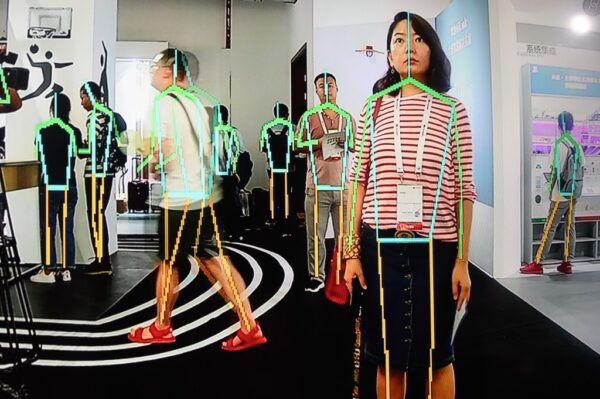Chinese tech giant Huawei rose to prominence because it received tens of billions from Beijing, thus allowing the firm to undercut competitors and gain market shares, said book author Jonathan Pelson.
However, the Chinese Communist Party (CCP) did not shell out the money for only pure business reasons.
“The CCP was not helping Huawei so that [it] can succeed as a company,” Pelson said. “They were helping Huawei so that the CCP could succeed in its geopolitical efforts, to export its philosophies and its governance principles around the rest of the world.”
Pelson made the remarks during an interview with EpochTV’s “China Insider” program on Feb. 21, to talk about his new book “Wireless Wars: China’s Dangerous Domination of 5G and How We’re Fighting Back.”
In December 2019, The Wall Street Journal reported that Huawei was in a stronger position than its competitors because it had access to about $75 billion in state support, in the form of subsidies, loans, grants, tax breaks, and discounted land sales.
Huawei’s rise coincided with the demise of Canada’s Nortel and America’s Lucent Technologies. The two firms dominated the global market in telecommunications equipment in the late 1990s.
The $75 billion, which could mean an average of $5 billion over 15 years, was a lot of money, according to Pelson.
“If you have a government backing you with $5 billion a year, letting you run what would be losses but still show a profit, it’s kind of hard to beat you out in the global market,” he explained.
Inside the United States, Huawei has sold telecom equipment to small cellular companies and set up wireless towers in rural areas, creating a national security concern for America, Pelson said. What’s even worrisome is the location of these towers, he added, after talking to FBI counterintelligence officers.
“They are next to all the nuclear missile bases; they are next to the special operations commands, which are located out in rural areas, [and] the nuclear submarine bases,” he said.
“What you found was Huawei was suddenly deployed around all these sensitive bases and installations in the United States,” he added. “They [Huawei] were able to basically have their finger on the pulse of the communications that were coming out of those places, if they were able to access their own equipment, which in general, vendors are able to do.”
Currently, Huawei and many of its affiliates are on a U.S. economic blacklist. Additionally, the U.S. government has already banned Huawei from the country’s 5G networks over security concerns.
In June 2020, the Federal Communications Commission (FCC) designed Huawei and Chinese tech firm ZTE as national security threats, barring U.S. firms from using an $8.3 billion government fund to buy equipment from the two Chinese companies.

The FCC subsequently announced a $1.9 billion program in September 2021. The program would reimburse mostly rural U.S. telecom carriers to “rip and replace” network equipment manufactured by Huawei, ZTE, and other Chinese companies designed as national security threats. Carriers could file an application from Oct. 29, 2021 until Jan. 28 this year.
On Feb. 4, FCC Chairwoman Jessica Rosenworcel told Congress that $1.9 billion was not enough. According to a statement from the FCC, she told lawmakers that the agency received 181 reimbursement applications from carriers, requesting a total of $5.6 billion.
Pelson said he recently spoke to people at some of the U.S. carriers looking to replace their Huawei equipment, but he was told that nothing had been replaced yet. He added that some of these people wanted to replace their 4G Huawei equipment with 5G equipment, not 4G equipment made by other companies.
Though some countries, including the United States, have banned Huawei’s 5G equipment, Huawei has expanded its business globally—particularly in Africa—mostly through the communist regime’s Belt and Road Initiative (BRI, also known as “One Belt, One Road”).
According to Pelson, Huawei is “helping bring a technological suppression that a lot of less wealthy countries can’t manage without China.”
Last year, digital rights group Top10VPN published a report (pdf) detailing Huawei’s global expansion by tracking its middleboxes, which are specially configured routers to inspect or filter internet traffic.
The report found that 1,799 such devices were found in 69 countries, including in China’s far-western Xinjiang region. At least 17 of these countries—including Cuba, Egypt, Nigeria, South Africa, Senegal, Colombia, and Bangladesh—used the middlebox for censorship.
Huawei didn’t respond to a request for comment by press time.
https://www.theepochtimes.com/china-infiltrates-us-and-other-nations-through-huawei-expert-says_4294385.html

No comments:
Post a Comment